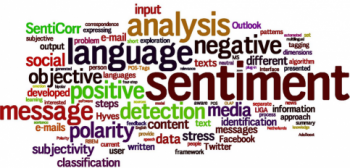MeaningCloud and University of Jaen have been the organizers of TASS, the Workshop on Semantic Analysis in Spanish language at SEPLN (International Conference of the Spanish Society for Natural Language Processing), again in 2018.

During the years, the research has extended to other tasks related to the processing of the semantics of texts that attempt to further improve natural language understanding systems. Apart from sentiment analysis, other tasks attracting the interest of the research community are stance classification, negation handling, rumor identification, fake news identification, open information extraction, argumentation mining, classification of semantic relations, and question answering of non-factoid questions, to name a few.
TASS 2018 was the 7th event of the series and was held in conjunction with the 34rd International Conference of the Spanish Society for Natural Language Processing, in Seville (Spain), on September 18th, 2018. Four research tasks were proposed. MeaningCloud sponsored this edition with prizes for the best systems in each of the tasks. A comprehensive description paper is (to be) published in Procesamiento del Lenguaje Natural journal, vol 62: TASS 2018: The Strength of Deep Learning in Language Understanding Tasks.


